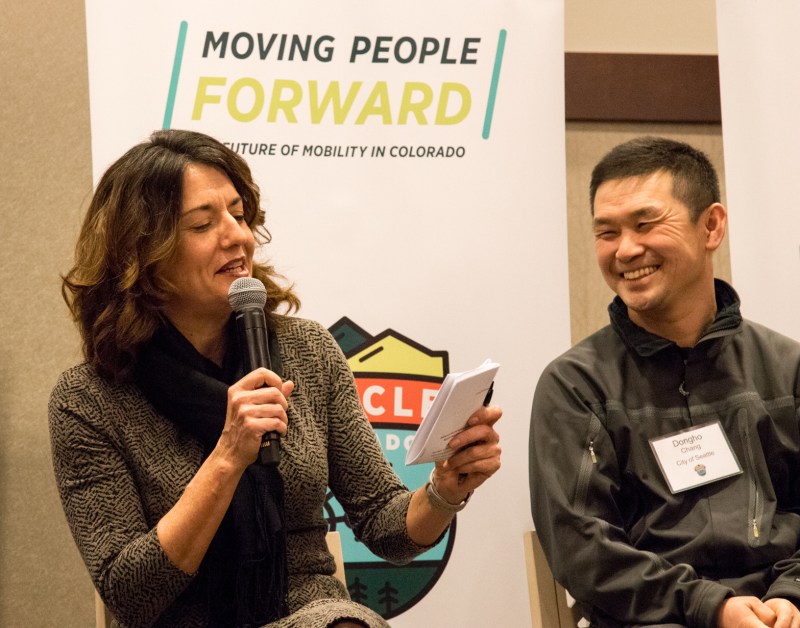Denver Metro Chamber Will Pitch Ballot Measures to Fund Colorado Transportation
The measures would raise the state sales tax, with 40 percent of revenue reserved for cities and counties, and 15 percent for transit, biking, and walking.

A coalition led by the Denver Metro Chamber of Commerce will file language next week for three ballot measures that would raise money for transportation projects by increasing the state sales tax, Chamber President and CEO Kelly Brough said Tuesday.
The three variations of the proposal each have a different sales tax increment — a half-cent, .62 cents, or a full penny. The measures would raise an estimated $500 million, $620 million, and $1 billion a year, respectively, Brough said in an email.
Of those funds, 15 percent would be for “multimodal” projects, i.e. transit, biking, and walking, 20 percent would go directly to cities, and another 20 percent would go to counties. The rest would go toward the Colorado Department of Transportation’s $9 billion wish list.
Brough announced the Chamber’s plan at Bicycle Colorado’s Moving People Forward conference Tuesday.
On a panel discussion that included Denver Public Works Executive Director Eulois Cleckley, former Seattle transportation chief Scott Kubly, and Seattle head traffic engineer Dongho Chang, Brough referred enviously to the Seattle region and the tens of billions of dollars raised for transit via a recent ballot measure.
While about 70 percent of Denverites commute solo in a car, only about 49 percent of Seattle residents do. The city has seen a marked shift from driving to transit as it continues to invest in better bus and train service.
If it’s spent wisely, revenue from a ballot measure can shift Denver toward transit too. “Our [commuting] numbers… are almost directly the opposite of what Seattle experiences,” Brough said. “And we know the strategy going forward can’t just be about funding, but also has to be about changing that behavior if we’re gonna really make our roadways work.”
The Chamber opted against a measure to increase property taxes, income taxes, and vehicle registration fees after polling indicated that a sales tax has the best chance of passing in November.
RTD, the Denver Regional Council of Governments, the Colorado Contractors Association, and elected officials from around the state already weighed in on the ballot measure. The consensus is that it should be a statewide policy change, not local or regional.
“We recognize the quality of life that we deliver in the state of Colorado is why we have the second-most educated workforce int he country,” Brough said. “It’s why they come here, it’s why they stay here. And if we can’t deliver that quality of life to them around the state we will lose that workforce.”
We’ll know more details about the ballot measures when the language is filed next week.


